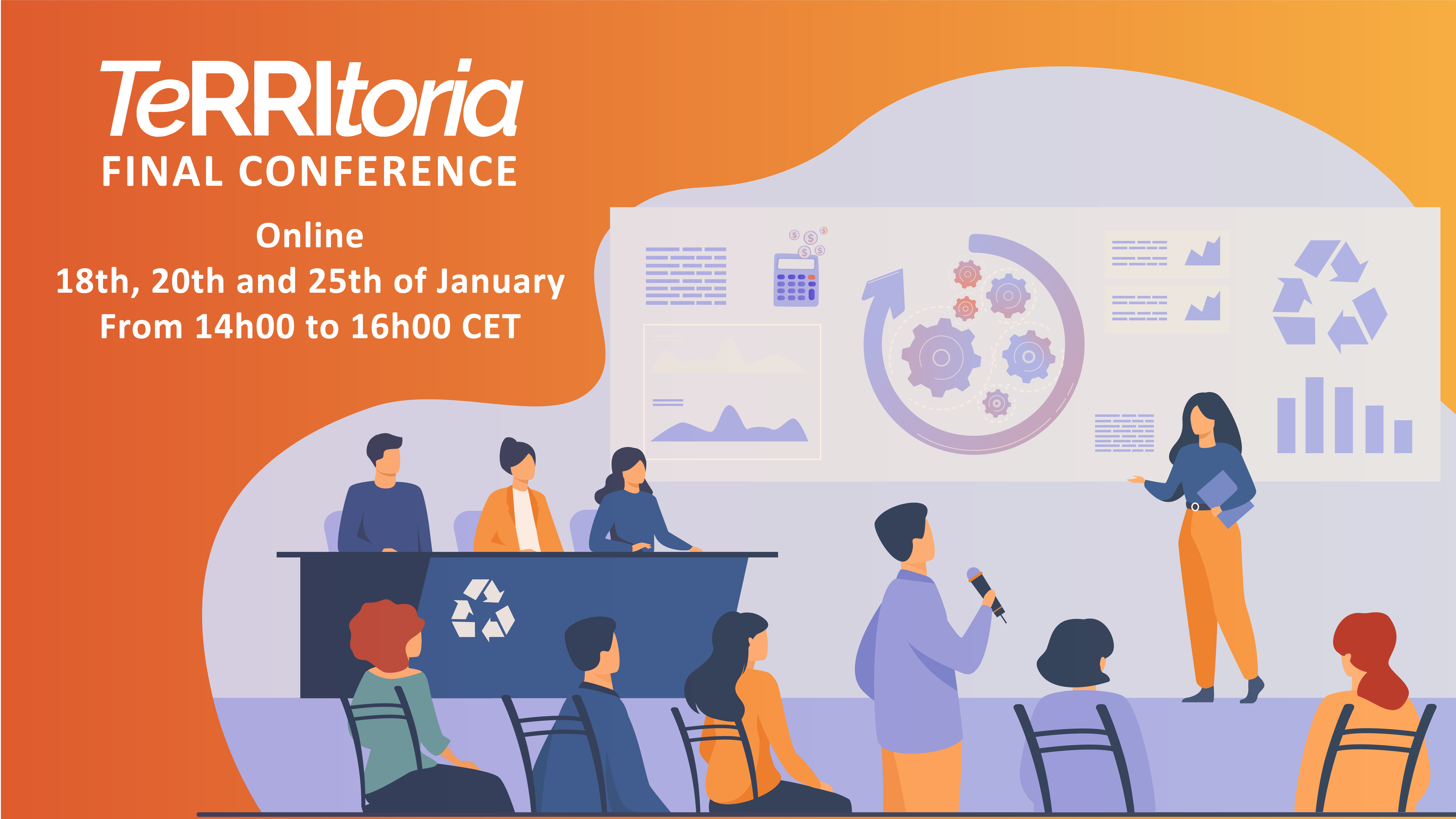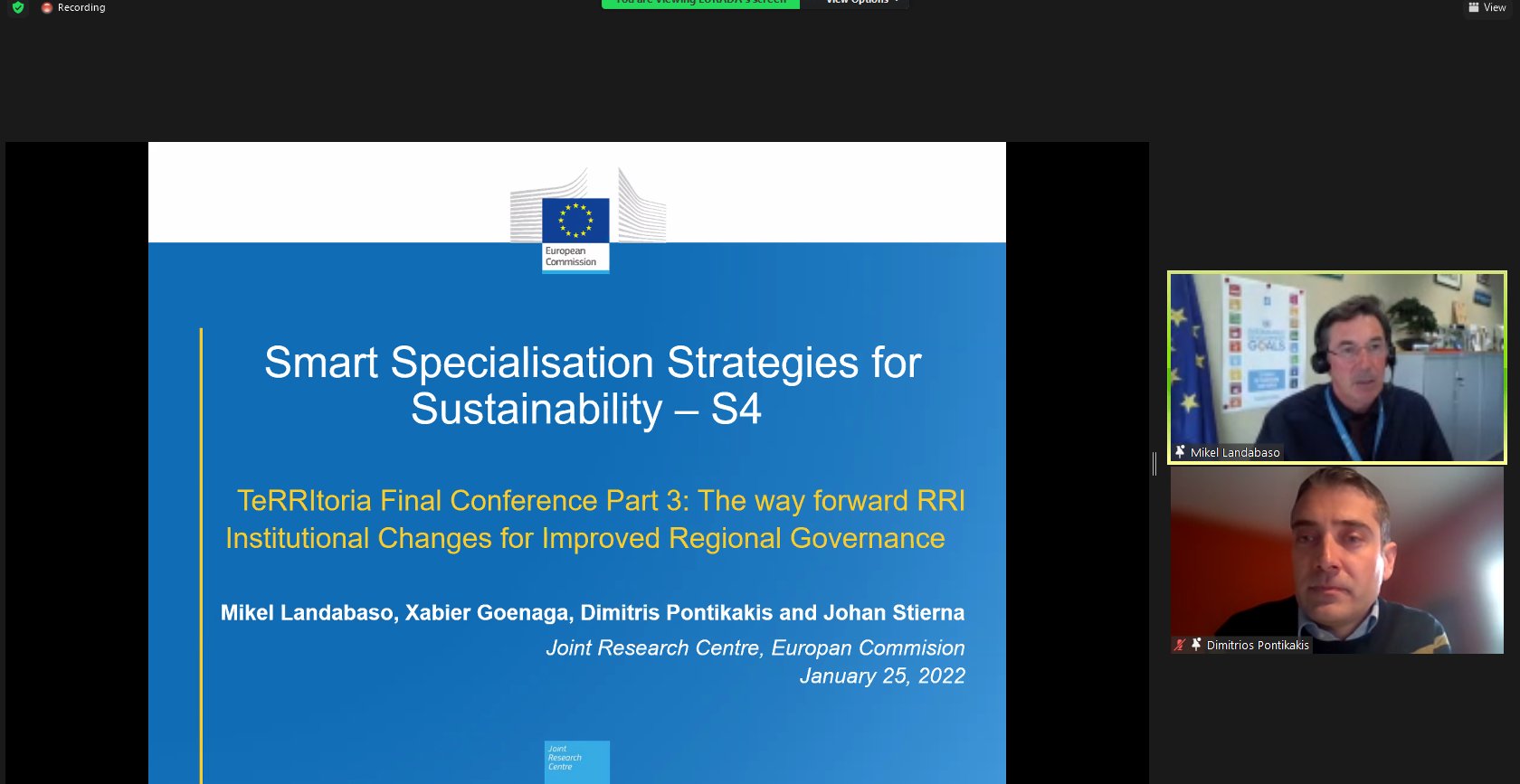Experiments are well underway despite challenges
The formative evaluation of the TeRRItoria project was delivered in July 2021, by project partners from Aarhus University, with the aim to take stock of the five Transformative Experiments carried out in the project. By analysing written material and conducting interviews, we have uncovered some cross-cutting challenges experienced by the territorial partners and here we highlight a few of them and their potential solutions to spark reflection and learning towards the end of the project.
The covid-19 pandemic
A cross-cutting issue, which is hard to ignore, is of course the Covid-19 pandemic. The pandemic hit Europe just as many of the territories were about to begin or were in the early phases of co-creating their experiments and the initial shock of the situation postponed the experiments slightly as staff and stakeholders had to establish a new sense of normalcy and a new way to work online from home. As the Europe-wide lockdown continued into the spring of 2020, the next issue emerged: rescheduling the preferred physical meetings to other formats like online-meetings and collecting stakeholders’ inputs via surveys and telephone interviews. It required time, effort and great flexibility to gain access to online tools and developing the skills to use them but eventually, the territories were largely successful in this transition. In some cases, the online tools actually had benefits, namely that it was easier to collect input from a greater number of stakeholders, easier for stakeholders to access online meetings, and easier to draft the S3 with written, as opposed to oral, feedback.

The full extent of the consequences of the pandemic on the TEs is still unclear. While the territorial partners got through the co-creation process and the experiments are on track, they are now operating in a new financial and political context than they did before. Procuring funding for the RRI initiatives may be harder now than foreseen, as finances are put towards crisis management and recovery, and the involved stakeholders may have different needs than they did before, which speaks strongly for a continued stakeholder involvement in decision-making in the regions.
Co-creation is difficult
In the formative evaluation, we found, that co-creation has taken different forms in the different territories. Obviously, the use of online tools have in some cases impacted the nature of the process, as it was impossible to sit stakeholders down around the same table in an open discussion. The co-creation is also challenging, as it has been difficult to engage citizens, difficult to get stakeholder to ‘speak the same language’ and ‘be on the same page’ e.g. have the same understanding of what innovation is, but also getting them to listen to each other and be sympathetic to each other’s needs despite divergent interests. Some territories also experienced difficulties in translating the vocabulary of RRI and responsibility into everyday speech. A continued dialogue with stakeholders and listening to their concerns and recognising their understandings of RRI conceptualisations and practices is important to build trust just as extensive follow-up communications, and in some cases training and awareness-raising, with stakeholders is necessary. This is not only important in the final stages of the implementation, but also for the sustainability of the initiatives started. We recommend all territorial partners to make plans for supporting stakeholders in carrying out and carrying on what they have set in motion.
The experiments are well underway, and you can read much more about the processes of implementation, challenges, and our recommendations towards the end of the project in D6.2.
 | Article written by Malene Vinther Christensen – The Danish Centre for Studies in Research and Research Policy Malene Vinther Christensen is PAministrative Officer at The Danish Centre for Studies in Research and Research Policy |




